100 Impacts
The For All Our Futures Campaign has raised an unprecedented $380,271,165 to fund research, innovation, and initiatives to support students. Read on to find out just some of the impacts of this remarkable generosity.
292 stroke patients' lives significantly improved after new treatment
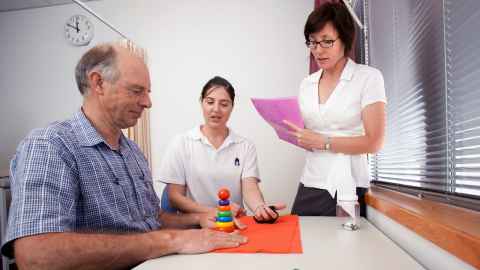
Professor Alan Barber and his team receive over $1m per annum from the Neurological Foundation to undertake research into stroke. Professor Barber is the Neurological Foundation Chair in Clinical Neurology. One of the most exciting developments in his area has been larger clot retrieval.
There have been 500 endovascular clot retrieval procedures carried out in Auckland City Hospital for people with stroke. As a result there are:
- 192 more people who significantly improved, who wouldn’t have without this treatment
- 100 more people who went home able to live independently, who wouldn’t have without this treatment
- 83 more people who avoided expensive hospital level care, who wouldn’t have without this treatment
Professor Cathy Stinear writes: "Achieving this change in practice required a great deal of energy and leadership from Alan. Clot retrieval is now available 24/7 at Auckland, and we treat patients who are helicoptered in from anywhere in the upper North Island. Time is of the essence, so considerable resources are dedicated to getting patients to hospital and treating them as fast as possible.
"Last year New Zealand carried out 50 clot retrievals per million people, and this was led by the Auckland region with 80 retrievals per million. This is ten times more than the entire UK with only 7 clot retrievals per million people. This shows how quickly and effectively we have made this new treatment available."
7,000 books donated to start 25 new community libraries in Tonga
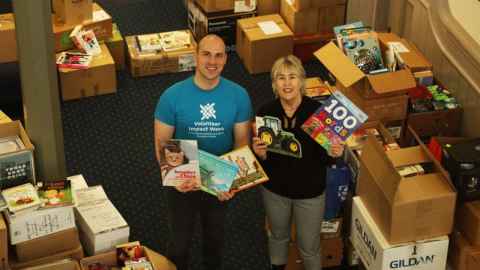
During Volunteer Impact Week, the University Alumni Office partnered with Books4Tonga to run a book drive to reach our shared goal of collecting enough books to establish 25 village libraries in Tonga to enhance the writing, reading and speaking of English. The village libraries are run by a local, either from their home or the community hall, opening mostly during after-school hours so that school children can use them.
Due to the efforts of the entire University community and the generosity of many organisations, including St Alban's Church, publishing houses and libraries, we collected 7,000 books which will help Books4Tonga and alumni and friends in Tonga to establish all 25 new libraries!
456 brains donated
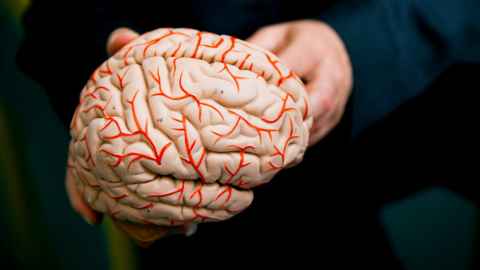
Since 2013, the Neurological Foundation Human Brain Bank at the Centre for Brain Research has received 456 brains from donors and their families to support brain research. The CBRE has been in contact with over 800 families who have expressed interest in brain donation. This tissue provides vital clues about neurodegenerative diseases such as Alzheimer's, Huntington's and Parkinson's along with research programmes into Epilepsy, Motor Neurone Disease and Schizophrenia.
157,680 minutes of sound in the gulf recorded
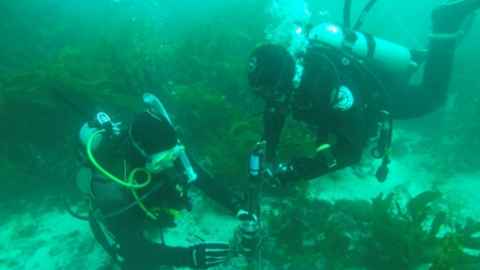
University of Auckland scientists have carried out the first-ever large scale investigation into the effects of ship noise in the waters of the Hauraki Gulf. The research shows a significant reduction in the amount of “communication space” available for at least two key marine species.
“Communication space is the range at which two species can hear each other and this study has found the range at which bigeyes and Bryde’s whales can communicate is significantly reduced when a ship comes past.” - Associate Professor Craig Radford.
1 three-dimensional predictive model of breast cancer developed
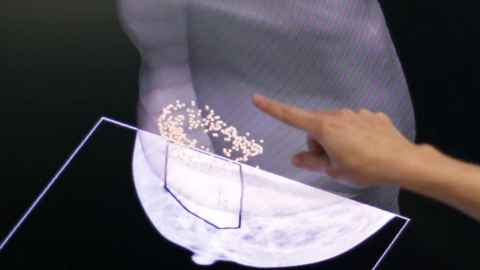
A new three-dimensional predictive model of Breast Cancer developed by University of Auckland researchers compiles data from all three types of known screening (ultra sound, MRI and CT) to predict where the tumours are depending on the position of the patient. Currently, each individual method has the patient lying in a different position. Putting them all together means that doctors can more accurately predict where the tumour is.
9 Creative Fellows appointed
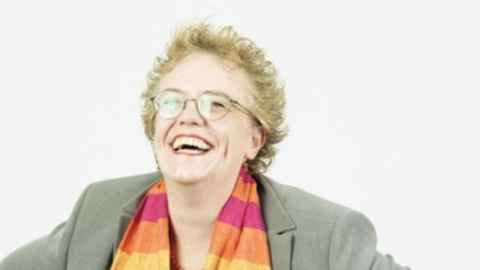
One of the key goals behind the Creative Thinking Project at the University of Auckland was to start a conversation about creativity. To that end, 9 international experts on creativity have visited New Zealand to inspire our creative communities. These have included Professor Nancy Andreasen, a world-renowned neuroscientist and psychiatrist and Professor Bruce Sheridan, a leader in the move to redesign film and media education for the 21st century.
600 little blue penguins given a home
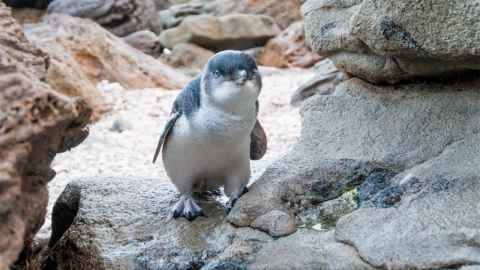
Thanks to the generosity of our alumni, nesting boxes for more than 300 pairs of little blue penguins have been installed on islands in the Hauraki Gulf and all around the Leigh coastline. In a number of places, penguins moved in within a week of placing the nest boxes and reared chicks. The tags also provided by alumni have recorded the huge distances the penguins are swimming to gather food to feed their chicks.
220 glass ceilings broken
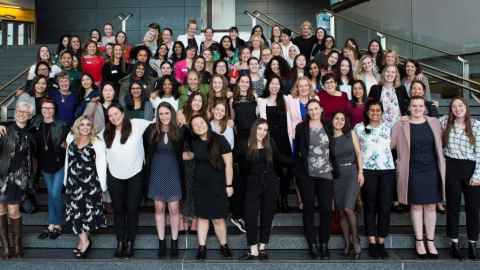
220 mentors helped students break the glass ceiling through the Business School’s Women’s Mentoring Programme. Women make up almost half of the Business School’s student population, and regularly top their classes. Despite this, women continue to be the minority in senior and executive positions, and on boards and committees. As a result, the perspectives of women are under-represented in public policy and decision-making processes.
Mentoring programmes facilitate women’s career development, as well as provide them with insights and information into organisational cultures at senior management levels.
10 new academic chairs funded
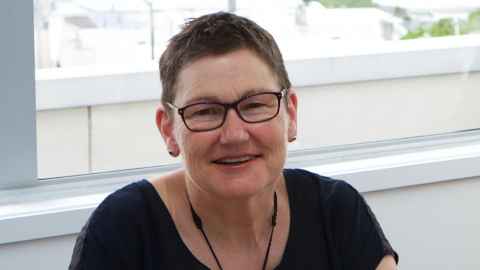
Thanks to the generosity of our donors, 10 new academic chairs have been funded during the Campaign. They cover a wide range of disciplines from pediatrics to ageing well. The leadership and vision of those who hold academic chairs will bring significant advances in research and discovery at the University.
3,000+ students helped to succeed in STEM subjects with new online tool
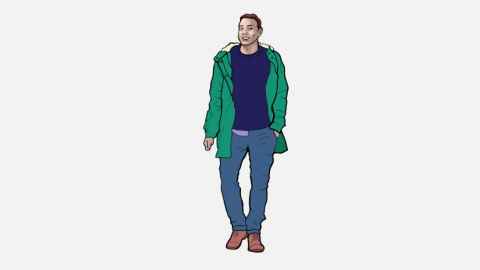
Thanks to philanthropic funding, the University of Auckland has created STEM Online NZ (in physics, mathematics and chemistry) to help more students access and succeed in STEM subjects at senior secondary school. The resource, designed specifically for New Zealand’s assessment system (NCEA) and to appeal to New Zealand students' interests, is currently available to all secondary schools throughout New Zealand.
Over 3,000 students have registered to use the STEM Online NZ resources (for NCEA STEM content) since they became available in late 2017!
Membership of the Chancellor's Circle has grown to 406 during the Campaign
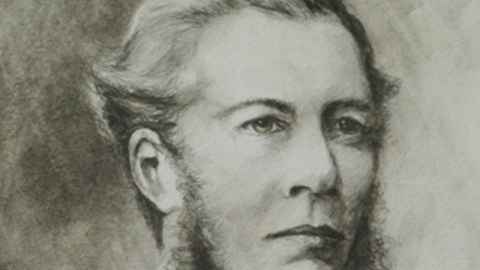
The Chancellor’s Circle recognises generous philanthropists who over the years have made important contributions to the University of Auckland, helping to shape its direction and achievements.
*Final number to be confirmed at the Chancellor’s Circle 2019 induction.
1 Unleash Space officially unleashed by the Prime Minister
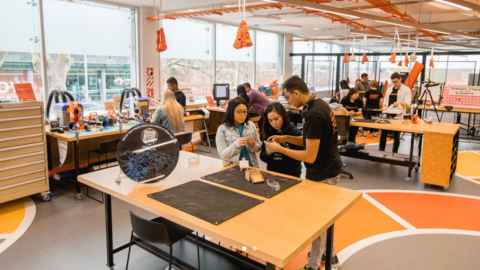
Unleash Space is a unique and iconic student-led collaboration and education space managed by the University of Auckland’s Centre for Innovation and Entrepreneurship. In 2018, the Centre for Innovation and Entrepreneurship offered more than 150 workshops, seminars and events to more than 2,000 students at Unleash Space. These are designed to build innovative and entrepreneurial mindsets and capabilities enabling graduates to thrive in their careers, whether they choose to work in a large corporate, join a start-up or begin their own business.
The University raised $9.6 million in sponsorship to establish the space. The founding donors are Sir Owen G Glenn KNZM ONZM Hon LLD, Beca, Chau Hoi Shuen Foundation, Hynds Foundation, Li Ka-Shing (Canada) Foundation and PwC.
5 Kalman teacher fellows hosted

The scheme was created to develop and promote mathematics and mathematics teaching in the Auckland secondary school community and follows on from the success of the Kalman Teacher Prizes in 2017 and 2018. Five Kalman teacher fellows will be supported every year from 2019 to 2021. The fellowships are worth $5,000 each and will cover the costs of releasing fellows from their teaching commitments, as well as a $1,000 honorarium in recognition of their participation in this scheme.
Over 200 tonnes of wine produced
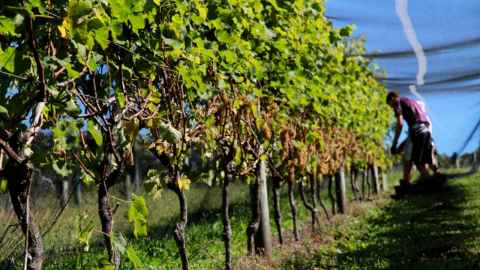
Cheers! During the course of the Campaign, over 200 tonnes of wine has been produced at Goldie Estate, gifted to the University by Kim and Jeanette Goldwater. The Estate is also home to the University of Auckland’s Wine Science Centre, which aims to continue the innovative spirit of the Goldwater family. The programme provides a unique learning experience for the students to be immersed in a fully operational winery.
One centre for Hearing and Balance Disorders created
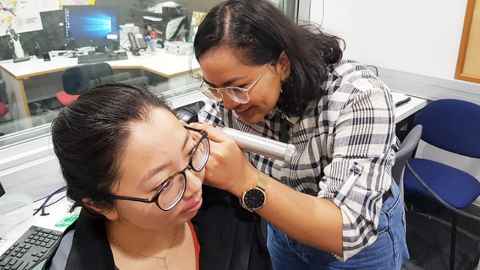
The Eisdell Moore Centre, named after pioneering Auckland ENT surgeon Sir Patrick Eisdell Moore, is generously funded by the Hearing Research Foundation and was established in 2017 to help the one in six Kiwis who have a hearing impairment and the 40% of us who will experience some form of balance disorder during our lifetime. The Centre wants to reduce the impact of hearing and balance disability in New Zealand and the Pacific region via research, community education and the promotion of evidence-based clinical services.
25 literary careers launched

The Kendrick Smithyman Scholarship and the Sir James Wallace Scholarship and Prize have supported over 25 poets and authors/novelists to launch their careers, publish books and build on the creative capital of New Zealand.
31,000 blogs and comments posted by Summer Learning Journey students
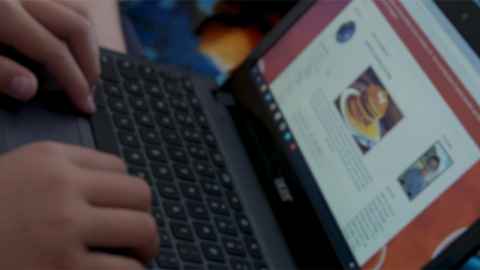
A team of educational researchers proved that blogging twice a week over the long holidays with the Summer Learning Journey can completely eliminate the 'summer slump' – a dramatic drop in reading and writing achievement for students over summer.
The Summer Learning Journey (SLJ) is a digital literacy programme designed by university staff and funded through strategic philanthropy. Without the SLJ, some children return to school having lost up to a year of literacy learning over the six-week holiday period. The SLJ programme team is working with teachers, parents and the local community to combat this slide by offering a free digital literacy programme in low-decile school settings. Programme costs are covered by local philanthropists. Last summer the SLJ operated in 50 schools across New Zealand. Participants generated an astounding 31,000 blogs and comments.
73 marathons run, helping to raise over $750,000 for Spinal Cord Research
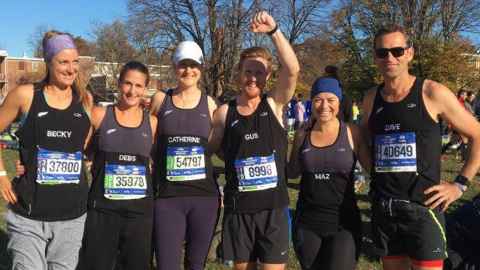
73 marathon runners with the Catwalk Spinal Cord Injury Trust have helped raise over $750,000 towards Spinal Cord Injury Research at the University of Auckland's Centre for Brain Research.
600 students' litigation skills sharpened
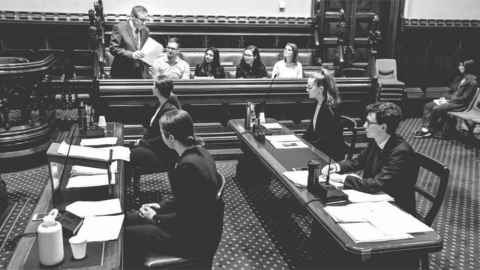
More than 600 students have joined the Auckland Law School Mooting Society, established in 2013, whose activities are almost entirely funded through philanthropy.
400,000 blue sharks saved
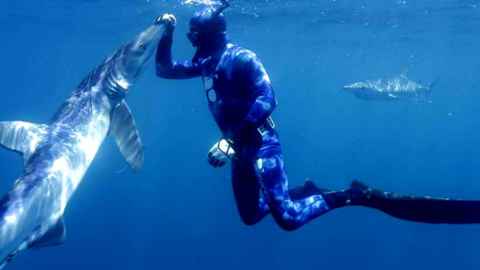
'Shark man' Riley Elliot satellite-tagged 18 blue sharks as part of his PHD project, producing an in-depth understanding of this highly migratory species. The extent of migrations, breeding and pupping grounds, trophic role and catchability were investigated. The communication of this science to the New Zealand public and increased knowledge of the issue around shark-finning contributed to the success of getting shark-finning banned in New Zealand waters in October 2014.
Before the ban, over 80,000 blue sharks were finned in New Zealand waters each year. So Riley's tireless efforts to promote understanding of this vital apex predator have contributed to saving around 400,000 blue sharks since the ban became law.
18,907 alumni chatted with our student callers
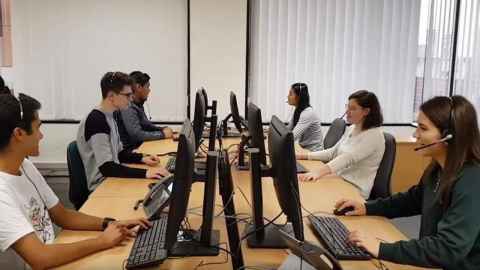
We have so many inspiring stories from our annual phone appeal, with alumni sharing memories of their time at the University of Auckland, and their enthusiasm for helping the current generation of students.
1 mysterious health issue - tendinopathy - probed
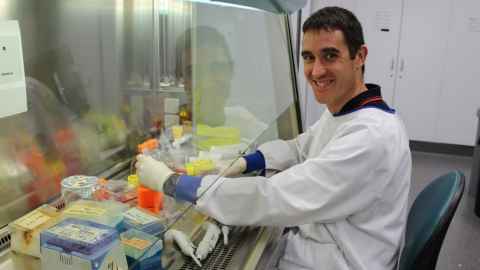
Unravelling the secrets of a mysterious, costly health issue has been made possible thanks to funding from the Auckland Medical Research Foundation (AMRF). The University of Auckland’s Dr David Musson is the recipient of the $500,000 AMRF Inaugural Senior Research Fellowship that will see him researching the causes and possible cures for tendinopathy over the next five years. Tendinopathy is tendon degeneration or disease, which results in tendon damage. ACC data shows tendinopathy cost the country $280 million in 2016 and is expected to rise to more than half a billion dollars by 2030.
$20,000 given to students each year through the Faculty of Engineering Student Support Fund
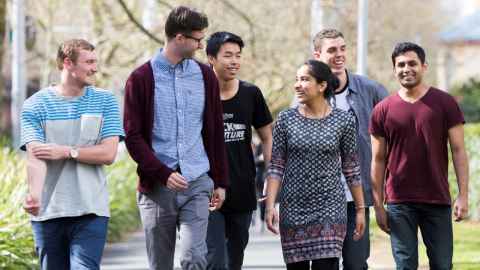
This philanthropically supported hardship fund supports engineering students who are at risk of not completing their studies due to their financial circumstances.
3 satellites designed by Space Systems students
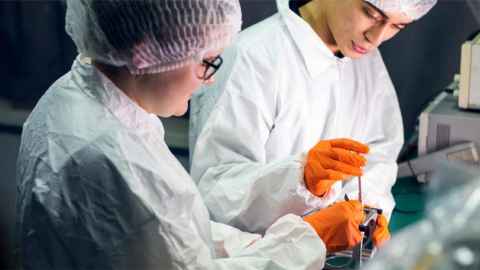
Each year students participating in the Auckland Programme for Space Systems in the Faculty of Engineering design, manufacture and ultimately launch a cube satellite. The programme started in late 2016 and is supported by philanthropic funding. First satellite is ready to be launched, second being built and third in early design stage.
1 new drug for Leishmaniasis developed to clinical trial
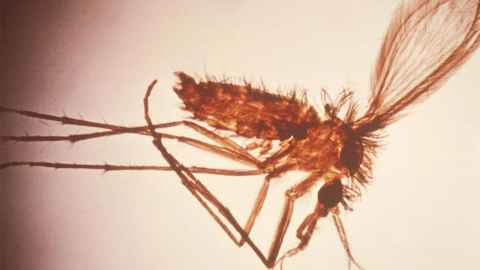
University of Auckland researchers, in collaboration with the Drugs for Neglected Diseases Initiative in Geneva, have developed a new drug, DNDi-0690, for the often-fatal tropical disease Leishmaniasis. This disease affects people in 98 countries, with 2 million new cases in 2018, and causes up to 50,000 premature deaths yearly.
5 new nursing postgraduate scholarships funded
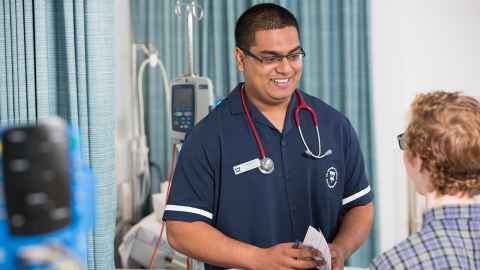
In 2018, 3,000 students were enrolled in postgraduate programmes at the School of Nursing, the largest postgraduate nursing school in Australasia. Philanthropic supporters have established 5 new postgraduate scholarships to support research in geriatric, palliative and cancer care. The University of Auckland's School of Nursing is ranked 36th in the world in QS international rankings of nursing schools in 2019.
100 alumni scholarships awarded to students experiencing financial hardship
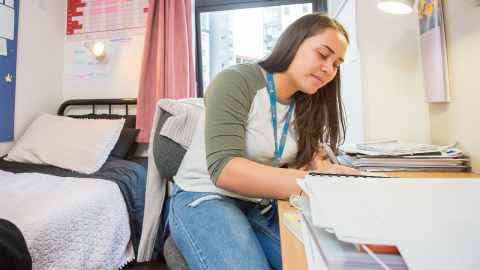
Alumni Scholarships were awarded to promising secondary school students who faced financial hardship. These scholarships provided the opportunity for rising star students to undertake a university education.
Over 1,000,000 data points collected in fight against rats
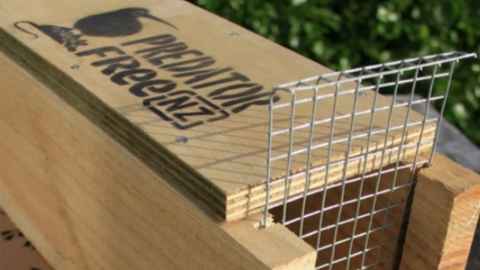
The CatchIT system is collecting data from across New Zealand to enable pest control organisations to monitor their results; helping groups to plan community projects, focus conservation management efforts, and conduct scientific research. The system plays an important part in the fight to control invasive species such as rats and stoats by enabling interactive visualisation and analysis of trapping and baiting data, with a view to protecting our native birds and other New Zealand flora and fauna into the future.
Zero critically endangered Bryde's whales killed by ship strike in the Hauraki gulf since 2014
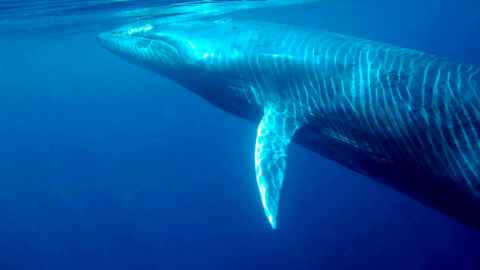
Since 1996, at least 43 Bryde’s whales have died in the Gulf. That may not seem many, until you realise that the whole population is only about 160. With the support of valuable post-graduate scholarships funded by Dr George Mason and Dr Beate Schuler, Dr Rochelle Constantine and her post graduate students from the School of Biological Sciences have been looking at why these deaths occur. Many of the dead whales show evidence of ship strike. It turns out they spend most of their time 6 metres below the surface, presumably where their food is. Unfortunately, they do this in an area frequented by ships with a draft of up to 12 metres.
Armed with this knowledge, Rochelle and her team have worked with the shipping industry to devise a voluntary plan for ships to slow down in areas frequented by the whales. As a result, not a single whale has been killed in the Gulf by ship strike since 2014 – a remarkable achievement compared to the 43 deaths over the previous 18 years!
315 R hex stickers stuck
Hex stickers were given to all donors to the Hadley Wickham crowdfunding campaign - 25th Anniversary of R. It celebrates R - a language and environment for statistical computing and graphics written by Ross Ihaka and Robert Gentleman from the Statistics Department at the University of Auckland. The money raised will establish the Ihaka Lecture Series, bringing together great speakers from New Zealand and around the world to share their knowledge and latest developments of this popular programme. The donations will also provide financial assistance to talented statistics students in need, perhaps even for the next Ross Ihaka!
14 virtual organs from 17th and 18th century donated
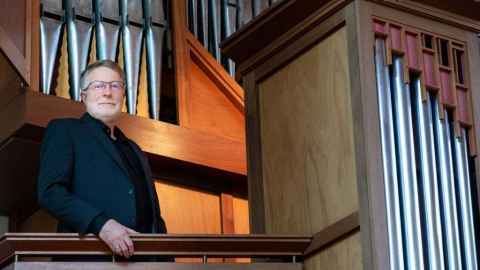
14 instruments from 17th and 18th century housed in the School of Music's virtual organ, generously donated by Mr Graeme M Edwards.
Behind this organ's striking casework, is a high-powered computer loaded with the sampled sounds of the pipes of organs from the various European centres of early organ design.
70 budding entrepreneurs from Velocity and VentureLab visiting Silicon Valley thanks to new programme funded by Tony Falkenstein
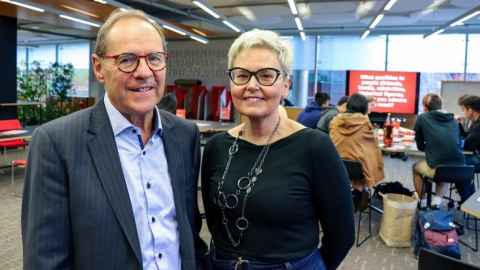
Each year in September, students from our Velocity and VentureLab programmes will travel to Silicon Valley for an inspiring week-long trip. The seven-day tour will include visits to successful start-up companies, where alumni introduce participants to leaders of these cutting-edge businesses, providing a money-can’t-buy experience.
Previous pilot trips have shown that meeting entrepreneurs, VCs, and other alumni working in tech companies in the Valley shapes the participants’ thinking. They gain greater courage to take risks and the confidence to back themselves due to hearing and seeing it first-hand via people who have been there and done that. With the possibility of the VentureLab teams pitching ideas in front of Silicon Valley investors, these trips will prove a priceless experience for our students.
12,000 conversations completed with digital assistant Jamie
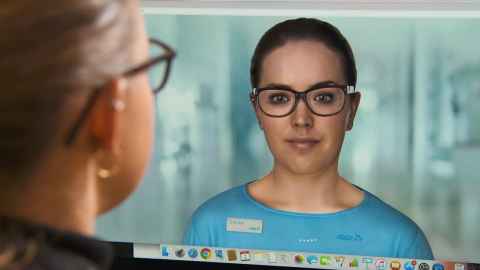
Horizon Ventures donated $1million at the start of the Campaign to help Professor Mark Sagar and business partner Greg Cross get their company Soul Machines up and running. A world leader in AI, one of Soul Machines' projects was the development of Jamie - a digital personal assistant for ANZ.
Customers talk to Jamie by enabling the camera on their phones, and starting a video conversation as they would with a real person.
Jamie has already had more than 12,000 conversations with existing and potential customers. She was initially programmed to answer questions on the 30 most frequently searched-for topics on anz.co.nz. But apparently, she has also been asked about her favourite movie times, whether she likes turtles, what’s in her fridge, what sort of tea she likes and who her favourite New Zealand geologist is!
World’s first ever virtual uterus developed
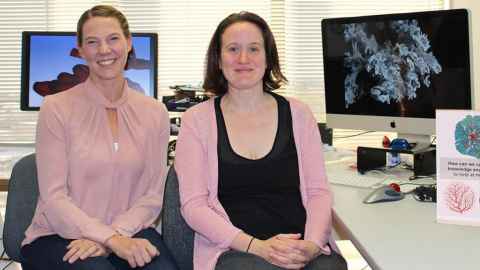
Researchers at the Auckland Bioengineering Institute have developed a virtual pregnant uterus that helps us to better understand why some babies do not grow properly in utero. The virtual uterus simulates the interactions between the blood circulation of the uterus and placenta during pregnancy. This will improve the ability to detect and treat those babies not growing properly at a much earlier stage of pregnancy.
27 new positions for emerging researchers funded by the Aotearoa Foundation
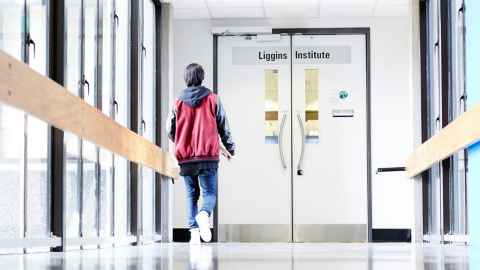
The Aotearoa Foundation has funded 27 new positions for emerging researchers. These include positions at Auckland Bioengineering Institute, the Centre for Brain Research and the Liggins Institute. The funding also includes 6 new undergraduate clinical research internships at the Liggins institute to attract young medical students into research.
120+ ventures launched
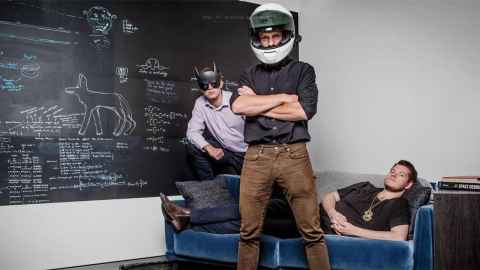
Over 120 ventures have been launched by Velocity, the University of Auckland's flagship student entrepreneurship programme. now in its 15th year the programme unleashes potential, giving momentum to people, innovation and ideas.
87 teenagers swallowed poo capsules in pioneering Gut Bugs Trial
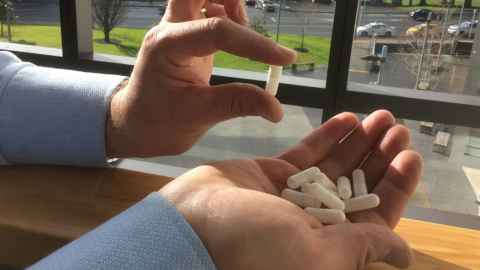
Would you take capsules of healthy, lean people’s poo if you thought it might radically improve your health?
That’s what 87 teenagers have done in the pioneering Gut Bugs Trial by researchers at the University of Auckland-based Liggins Institute, which is looking at whether a gut bugs transfer – already used to treat a severe form of diarrhoea - could also treat obesity. People who are fit and lean have a different population of gut bugs that those who are obese. Researchers at the Liggins Institute have shown that giving obese teenagers the gut bugs from lean people can repopulate their gut with better bugs. This may be a potential treatment for obesity and other diseases that result in diarrhoea such as Crohns Disease.
Listen to Professor Wayne Cutfield’s Raising the Bar podcast – ‘Gut bugs gone bad’
10 Whole Body Vibration plates installed in schools to help children with cerebral palsy
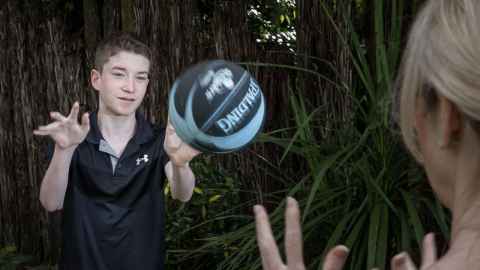
Financial support from the Jubilee Crippled Children Foundation has funded critical research at the Liggins Institute into Whole-Body Vibration Training (WBVT) as a new and innovative treatment for adolescents with cerebral palsy.
The clinical trial found that WBVT can significantly improve mobility, bone strength and muscle mass in adolescents with cerebral palsy - just 15 mins treatment over 12 weeks dramatically improves children’s ability to walk greater distances and with more stability. The $330,000 donation allowed lead researcher and Liggins Institute research fellow Dr Silmara Gusso and her team to conduct the largest and most rigorous study of WBVT to date, confirming and elaborating on the benefits of the treatment.
Thanks to the generosity of the David Levene Foundation, 10 plates have been put into schools, which has made treatment much easier.
7 early instruments donated
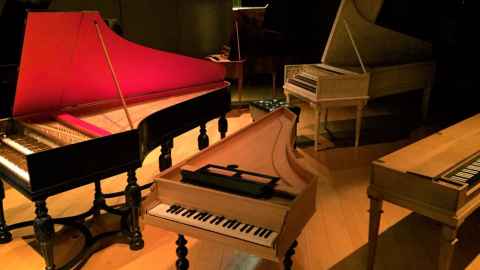
The University’s School of Music has gratefully received several donated instruments, including a collection of four early keyboards from Mark McDonald (on long term loan), a clavicord donated by Ana Nathan, Michael Redshaw’s fortepiano and Graeme Edward’s Virtual organ.
54 Seelye scholars helped through financial hardship
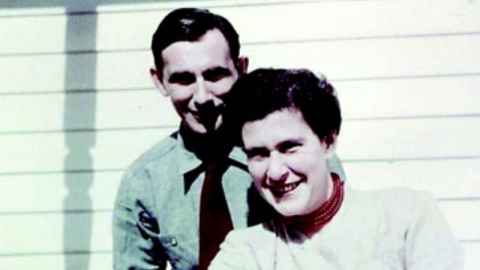
The Ralph and Eve Seelye scholarships are awarded to undergraduate students from low decile schools who show academic potential, but are experiencing financial hardship.
Said scholar Audrey Po’e-Tofaeono, "As a Pacific student from a low decile school, it is very daring to endeavour to become a student of the University of Auckland who wanted to pursue a career in health. However, through this scholarship, this ambition became a reality."
8 weeks of teacher-led games improved 4-year-olds' self-control skills
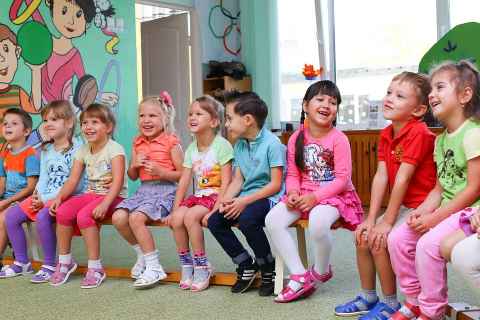
Thanks to philanthropic funding, researchers at the Faculty of Education and Social Work showed that classroom-based Circe Time Games improve preschoolers’ self-control skills.
The eight-week programme used teacher-led movement and music games to help children practise self-control to develop the capacity to stop, think and then act.
The games may be an effective and low-cost strategy for improving self-regulation and could also have practical implications for policy aimed at improving school readiness. We hope to conduct a larger study in early childhood centres in future.
$1m donated to help Pasifika students become doctors
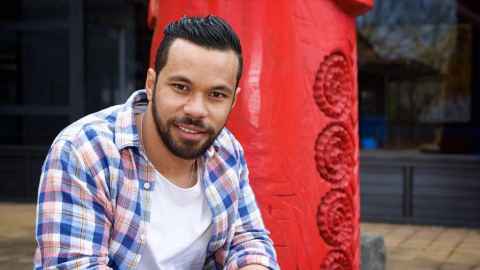
Concerned at the extremely low number of Pasifika doctors in New Zealand (around 2%), John and Rose Dunn decided to help redress the balance. Their $1 million gift will contribute to course fees and accommodation costs for young Pasifika students.
1 groundbreaking discovery made thanks to new heart and stroke machine
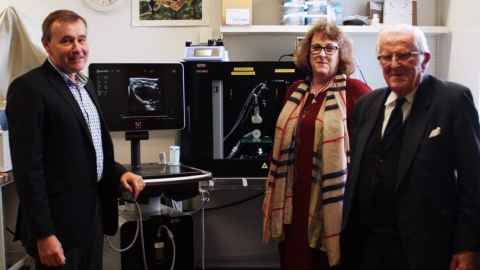
University of Auckland researchers are uncovering crucial new information about strokes never documented before thanks to a unique machine gifted by the AH Somerville Foundation.
The Vevo 3100 has facilitated the research of Professor Julian Paton and Dr Fiona McBryde at the Faculty of Medical and Health Sciences to discover information that could play a critical role in how blood pressure levels are controlled in stroke patients.
1 revolutionary new treatment developed for Amblyopia (lazy eye)
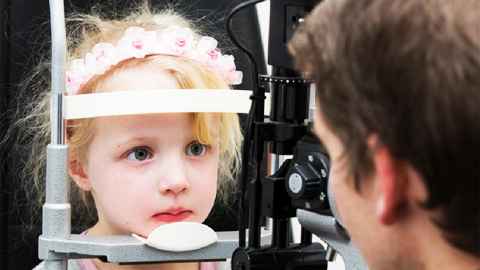
With support from the AMRF, Associate Professor Ben Thompson and his colleagues have pioneered the development of novel approaches to the treatment of amblyopia in both adults and children. One of these new treatments takes a completely different approach to the traditional 'patching' method. Instead of forcing the use of the amblyopic eye by covering the other eye with a patch, the new treatment encourages the two eyes to work together. This treatment can be given in the form of specially modified video games that can only be played if the two eyes cooperate. Initial studies have revealed highly promising results in both adults and children using this approach with improvements occurring in a matter of weeks.
72 legacies honoured with a gift to the University in their will
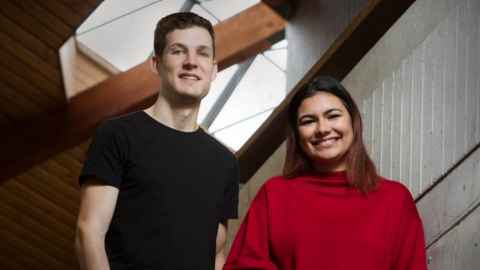
We’re grateful to the 72 alumni and friends who chose the University of Auckland to create a legacy dedicated to improving and transforming the future for New Zealand and its people.
300 New Zealanders with Motor Neurone Disease genetically screened to identify potential therapies
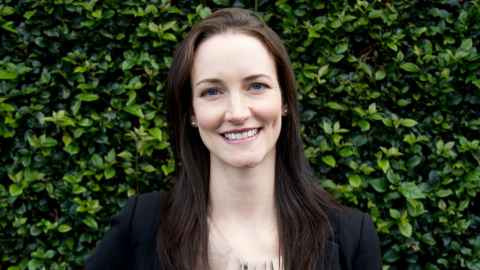
300 New Zealanders with Motor Neurone Disease will be genetically screened to help identify causes and potential therapies for this prominent neurodegenerative disease.
New Zealand has one of the highest rates of MND worldwide and our Centre for Brain Research is working to identify whether this high rate is caused by environmental or genetic risk factors. This three-year clinical trial is largely funded by philanthropic individuals and organizations across New Zealand and will be the flagship study for our soon to be launched Centre for Brain Research MND Research Clinic.
Over 7,000 donations made
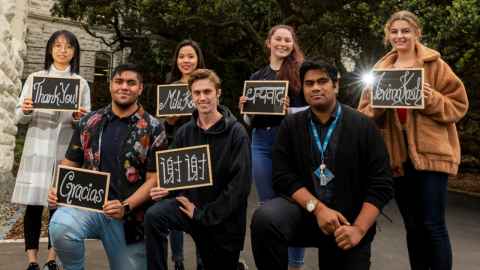
We're inspired by the generosity of our donors, who between them to date have given over 7,000 individual gifts to support the For All Our Futures Campaign.
1 three-dimensional computerised model of the lung developed
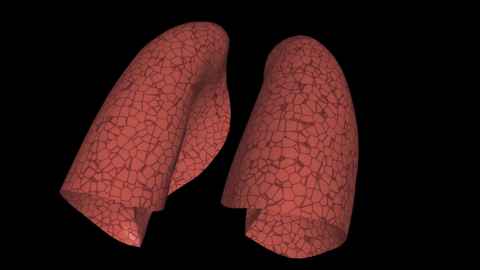
The world’s first three-dimensional computerised model of the lung has been developed at the Auckland Bioengineering Institute (ABI). This is the first time researchers have been able to put together how the elasticity, blood flow and air flow all happens in the lung at once. It will allow doctors to better treat patients and to tell the difference between illness and aging which has not been previously possible.
14 life changing internships at the Peggy Guggenheim Collection in Venice funded
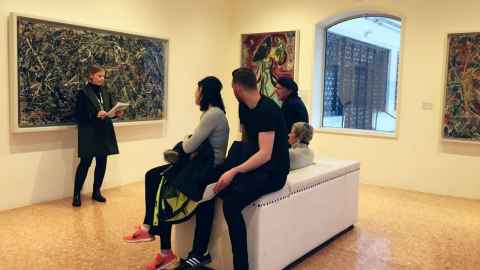
14 students brought back their knowledge and experience to NZ after taking up life-changing internships at the Peggy Guggenheim Collection in Venice, thanks to the Wright Family Scholarship in Art History.
120 microplastic samples collected to better understand plastic pollution
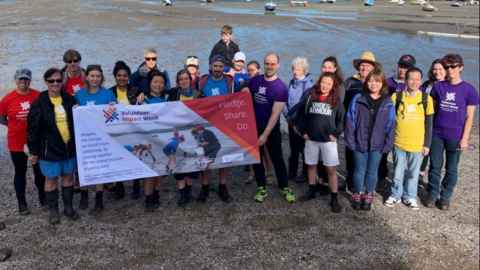
120 microplastic samples have been collected from 23 sites across the Waitemata, to help our researchers assess the level of microplastics, and the effects of microplastic pollution on Auckland's coastlines. One of those sites is Little Shoal Bay, where alumni collected samples during Volunteer Impact Week.
200+ alumni have given their time to coach or judge students in case competitions and moots
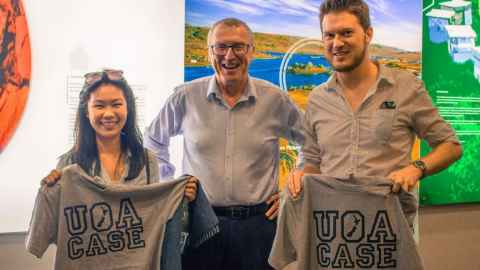
Alumni provide cohorts of aspiring student entrepreneurs an insider’s perspective on the business ecosystem and insights into what’s needed to be a successful change maker today. Business School students get first-hand knowledge and expertise from alumni in their respective fields while they work on real-world business cases or grappling with issues pertinent to their field.
1,354 University staff members have donated to the Campaign
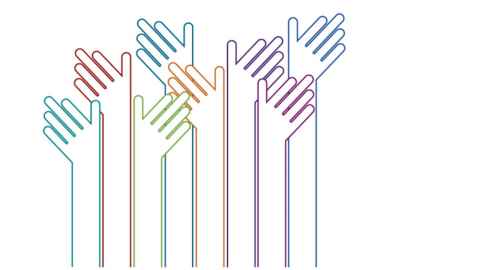
People working at the University have demonstrated their incredible generosity over the years, with over 1,354 current and former staff members donating to the For All Our Futures Campaign. These gifts have made a real difference – to the lives of students receiving the direct support of scholarships to those whose lives have been improved by the many discoveries and advances made by our researchers.
Trebled the number of donor-funded scholarships since the start of the Campaign
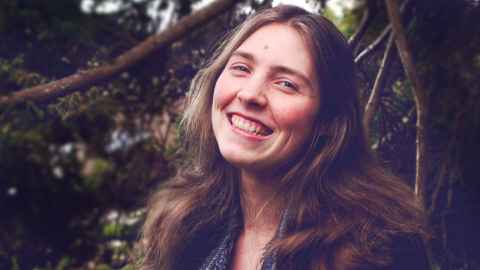
Over the course of the Campaign, the number of scholarships funded by donors has trebled - an astonishing testament to the generosity of our supporters. There are now three times as many donor-funded opportunities for our students to secure the life changing assistance a scholarship can bring. From providing financial help to those who would otherwise not be able to afford to attend University, to offering inspiring travel and industry experiences, every scholarship granted has a tangible impact on the students that receive them.
32 student entrepreneurs mentored through the Summer Lab Programme
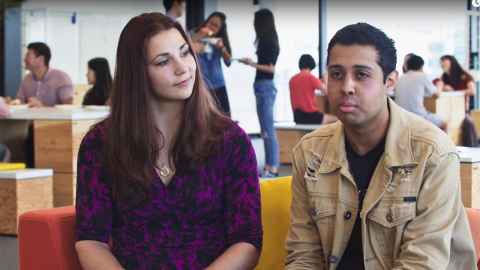
32 alumni have mentored the next generation of student entrepreneurs through the Summer Lab programme.
Over 3000 plastic and paper bags separated and saved from going to landfill
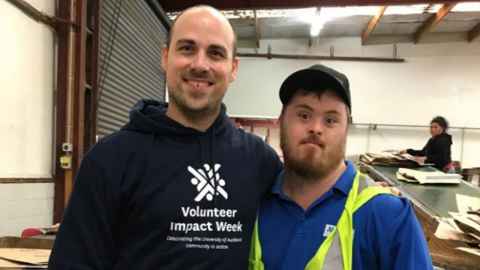
As part of Volunteer Impact Week, the University of Auckland community joined up with Volunteering Auckland and Abilities Group, a social enterprise that enriches the lives of people with disabilities through meaningful green jobs. Together, the University, Sustainable Business Network, and our alumni contributed to Abilities’ work, preventing some 4000 tonnes of e-waste and plastics from entering landfills!
10 schools inspired by female engineers
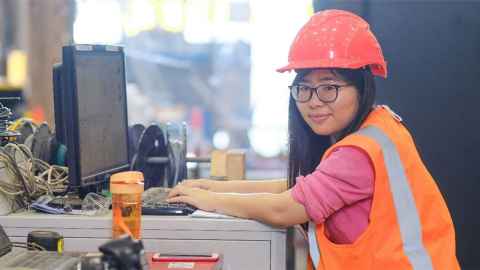
Thanks to financial support from industry partners, Faculty of Engineering students are undertaking a schools' outreach programme. These visits provide a platform for students to share their story and encourage more female high school students to study engineering. This is one of the many initiatives to help the Faculty of Engineering achieve its goal of 33% of all new first year students being female.
15 new cancer drugs developed to clinical trial
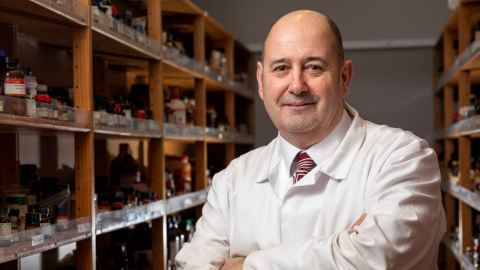
The Auckland Cancer Society Research Centre (ACSRC) at the University of Auckland is one of the world’s most renowned research labs in the field, having developed 15 drugs to clinical trial. As an example, one of the promising new drugs is CP-506, developed over three years by associate professors Jeff Smaill and Adam Patterson.
The drug targets oxygen-deprived cancer cells while sparing normal tissues, making the treatment more active, specific and safer than older chemotherapy drugs.
3733 alumni learnt something over a drink at Raising the Bar
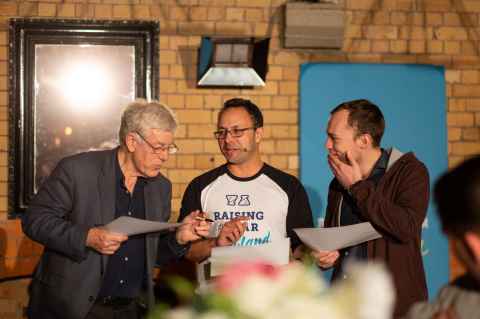
Our Raising the Bar series, where University lecturers give informal talks in bars around Auckland, has been a sold-out success three years running.
Our 2019 event included talks such as ‘Gut bugs gone bad’ and ‘Is technology terminating relationships at school?’
Over the next couple of weeks, we’ll be publishing podcasts of all 20 of this year’s talks.
50 scholarships raised for Kupe Leadership Programme - NZ's own answer to Rhodes
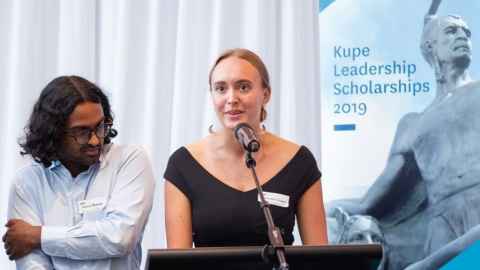
Just as Kupe bravely sailed across the Pacific for an unknown land, the same courageous spirit is sought from our Kupe Leadership Scholars at the University of Auckland. Students from around the country with high aspirations for New Zealand, a powerful wish to contribute, and who are already showing signs of real leadership potential, are encouraged to apply for one of the most prestigious scholarships at the University.
Worth $24,100 each, the scholarship covers fees, accommodation, and, crucially, development and mentorship in leadership.
The Kupe Leadership Scholarships are seed-funded by Canadian philanthropist and Rhodes Scholar John McCall MacBain and are supported by a number of other philanthropic donors to the University of Auckland Campaign For All Our Futures.
Over time, it is hoped these home-grown scholarships will come to have the prestige and mana that has been associated with those from overseas, such as the Rhodes Scholarships and others.
1 scholarship funded for a disabled student to travel overseas
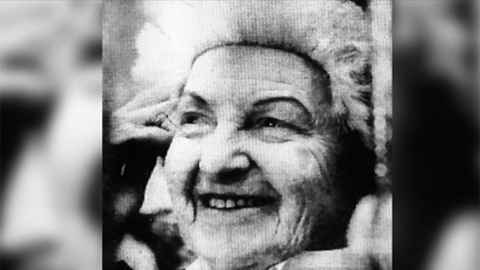
Muriel Roberts was a graduate of the University of Auckland but she came to her studies later in life. In an article in the New Zealand Herald in 1994, Muriel described herself as a late developer. She was kicked out of school as a youngster and it was more than 40 years later, when she was in her late 50s, that she picked up another textbook. Nineteen years later, she had three degrees – a BA, an MA and an LLB. She is believed to have been the oldest person admitted to the Bar when she was 76.
All of this was achieved, despite considerable disability – Muriel was profoundly deaf in one ear and had only 3% hearing in her other ear.
Sadly, Muriel died four years ago at the age of 98. But her impact lives on. She generously left a bequest of a little over $15,000 to the University of Auckland to establish a scholarship with the wish that the money go towards the cost of an overseas trip for any needy disabled student member, preferably one who has not been overseas before.
3 new fellowships for emerging medical researchers established by the Hugo Charitable Trust
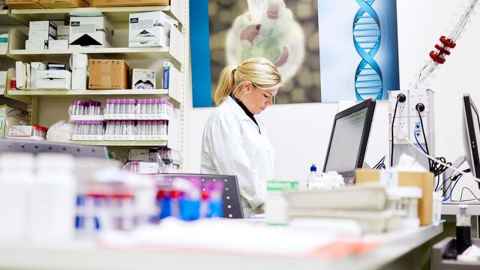
The Hugo Charitable Trust has established 3 new fellowships for emerging researchers with additional funding for PhD students and research funds. These are supporting research to reduce the risks associated with preterm birth at the Liggins Institute, optogentics as a new treatment for Parkinson’s at the Auckland Bioengineering institute and novel treatments for pancreatic cancer in the Surgical and Translational Research Centre.
412 pairs of glasses donated to give a new lease on life to people in Samoa with poor eyesight
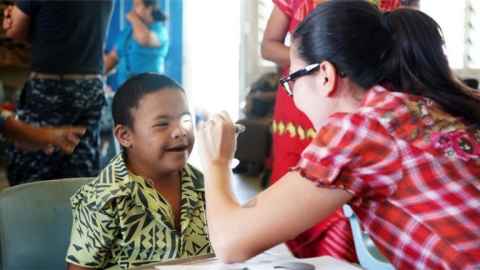
As part of Volunteer Impact Week, the University of Auckland community joined up with our 2017 Young Alumna of the Year, optometrist Erna Takazawa, to collect pre-loved glasses so she can give a new lease of life to people in Samoa with poor eyesight.
9,200 of words of wisdom passed on from alumni to new graduates
Snippets of advice from thousands of alumni have been passed on to the next generation at graduation, delivered in fortune cookies.
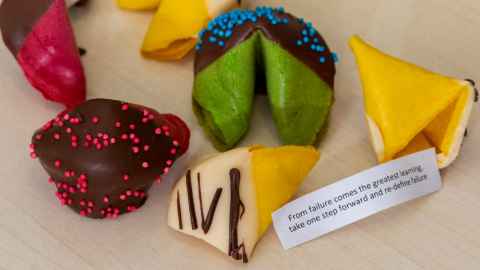
19 internationally renowned Shakespearean Fellows visited
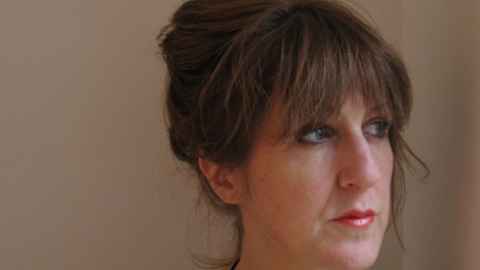
19 internationally renowned visiting Shakespearean Fellows contributed to the cultural capital of NZ, held public lectures, engaged and contributed to festivals, conducted research seminars, taught and inspired students in the Faculty of Arts, thanks to an endowment from John Griffin in memory of his mother, Dr Alice Griffin, who was a prolific scholar, drama critic, lover of Shakespeare and theatre.
1 Marie Clay Research Centre opened
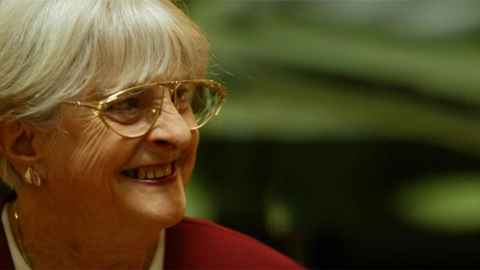
The Centre was created to continue the legacy of Dame Marie Clay, distinguished researcher and developmental psychologist, and the first woman professor at the University of Auckland. Reading Recovery, which she started, is now in its 33rd year in New Zealand and 30th year in the United States. The research centre's key purpose is to promote leadership, equity, achievement and diversity in early years literacy.
1 effective treatment developed for babies born with Neonatal Hypoglycaemia - used worldwide
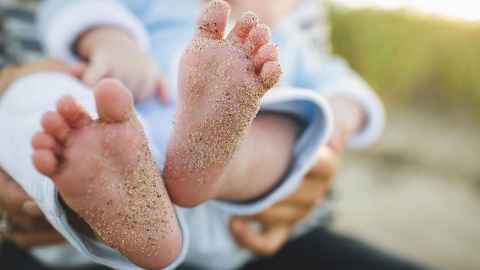
Babies with low blood sugars can suffer brain injuries. An inexpensive gel has been developed which can be wiped on the inside of a cheek and prevent these injuries - which have a high cost. Oral glucose gel treatment reduces the chances of the baby needing neonatal Intensive care for hypoglycaemia and can save over $1000 per infant in hospital costs. The treatment is now in practice around the world.
5 generations of transgenic Zebrafish developed
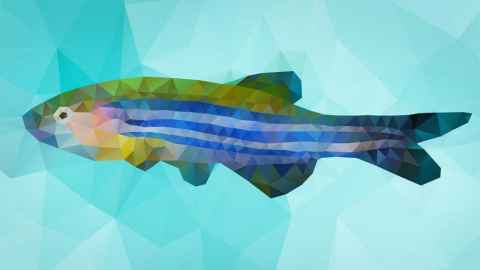
The University of Auckland has developed 5 generations of transgenic Zebrafish to study cancer causing mutations for patients with Acute Myeloid Leukaemia (AML).
Models available to study are limited in AML research, so once a definitive model is identified, it will provide new therapeutic insights and several new opportunities for finding a cure to this terrible disease. The Child Cancer Foundation plays a critical role in supporting this research through philanthropy.
10 Architecture alumni established the Architecture Centenary Award
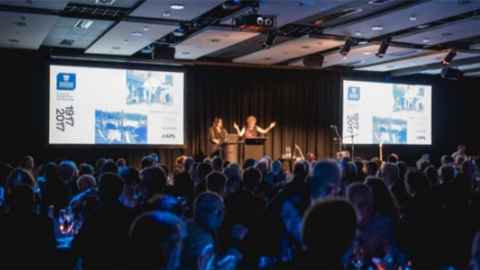
The main purpose of the Award is to assist a Masters level student in a professional Architecture programme who is undertaking thesis research that investigates innovative and interdisciplinary approaches to architecture and urban design within a New Zealand landscape of rapidly evolving social diversity.
$14.9m donated by the Heart Foundation over 22 consecutive years of giving
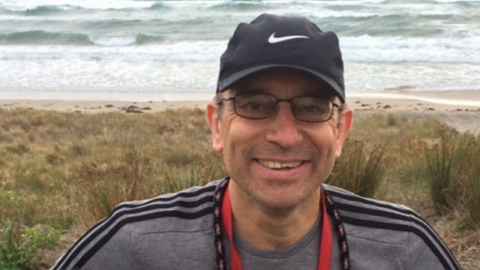
Over many years, and with many millions of dollars, the Heart Foundation has supported ground--breaking research projects to combat heart disease, which is still this country’s biggest killer. They’ve funded senior research fellowships, established a Heart Foundation Chair in Heart Health and much more.
120 engineering students participated in the Dean's Leadership Programme
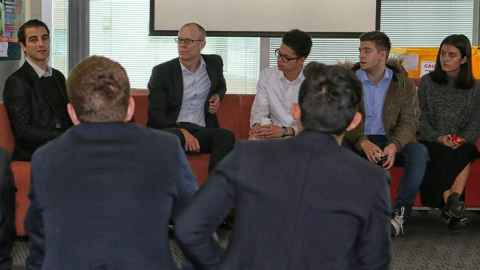
The Dean's Leadership Programme was established with the support of our generous donors in 2016. 2019 will see the fourth cohort of students participate in the programme. The DLP is designed to develop highly talented engineering students with the personal capacity to change New Zealand and the world for the better.
1 specialist cancer clinical trials unit established
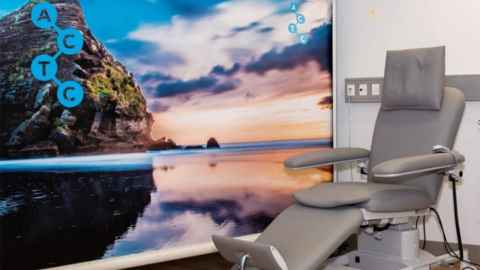
An anonymous $1.4 million donation helped establish the Auckland Cancer Trials Centre, a joint initiative between the University of Auckland and the Auckland District Health Board.
ACTC medical director Dr Sanjeev Deva said, "With this grant we’ve taken the first steps to a system where access to trials is standard, where we can offer patients access to novel medicines to achieve better cancer outcomes. The trials not only come from pharmaceutical companies, but we intend on developing trials from the University’s research."
526 alumni have shared their expertise with students as guest speakers and lecturers
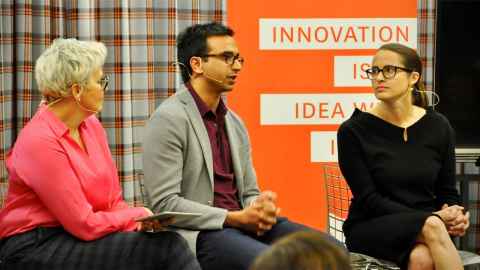
Experts from all fields of study and drawing from a broad range of life experiences have inspired fellow alumni at public lectures and events.
Scenes from 37 Operas performed
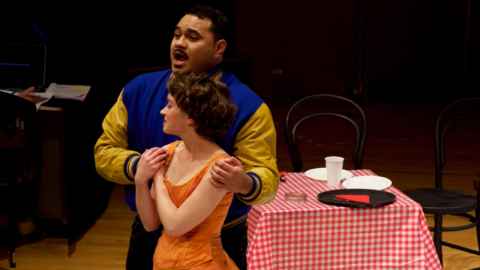
One of the year’s musical highlights, Opera Scenes, prevails in its capacity to captivate and delight audiences. A vocal feast previewing the future of New Zealand opera, it showcases resounding performances from the School’s talented voice students.
Opera Scenes is the culmination performance of The Wallace Opera Training Programme, made possible by generous support from The Wallace Foundation. The cast consists of undergraduate and postgraduate voice performance students, coached and led by the School of Music’s accomplished academic and performance staff.
100 specialist teachers funded to end STEM skills shortages
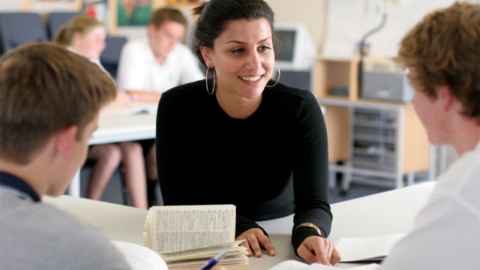
In science only 20% of Year 8 students perform at curriculum expectations for their year level and in maths in Year 8 only 41%. The Woolf Fisher Trust funds primary teachers in the Faculty of Education to specialise in maths and science teaching, funding 100 specialists by 2022.
At the centre of the programme is a highly skilled and knowledgeable practitioner and researcher who mentors the scholarship recipients while they teach in classrooms, increasing effectiveness and motivation. The programme helps teachers hone their teaching skills and allows them to explore how young students learn scientific and mathematical concepts.
309 confidences boosted through the Workplace Insights Programme
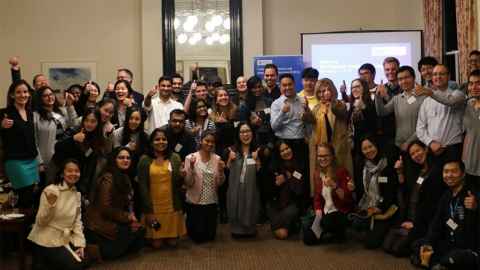
309 international students have had their confidence boosted through connecting with 105 alumni on the Workplace Insights Programme (WPI). WPI is a biannual programme that was established in 2016 in order to build the self-confidence of international students and help them discover the expectations of the New Zealand workplace.
3 new academic positions established in the Faculty of Arts
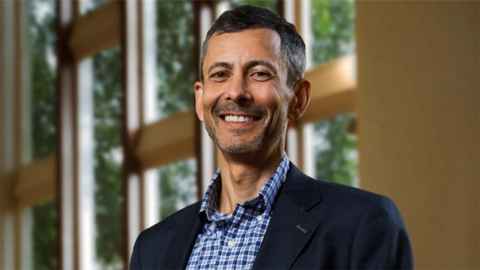
Thanks to philanthropic funding, the David and Corina Silich Lectureship in Museums and Cultural Heritage, the Marti Friedlander Lectureship in Photographic Practices and History and the Maclaurin Goodfellow Chair in Theological and Religious Studies have been established.
9 new scholarships provided to students from refugee backgrounds

2017 Young New Zealander of the Year Rez Gardi is one such student for whom scholarship support has made an immeasurable difference to her studies in Law and Arts. Rez was born in a refugee camp in Pakistan and moved to New Zealand when she was six years old. Rez helped establish the new refugee scholarship fund.
761 exchange students introduced to alumni volunteers in key cities around the world
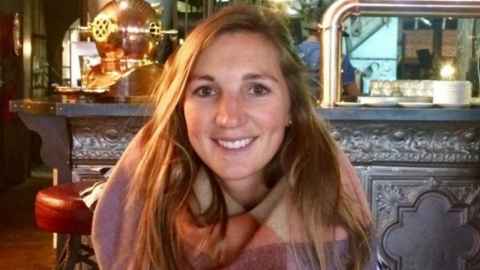
The Alumni Relations team sends personalised emails to outbound 360 degree exchange students twice a year, linking them up to Volunteer Alumni Coordinators and networks in their destination cities and inviting them to alumni events happening there. The students are sometimes hosted by the VAC for a get-together at a local cafe, or even at their workplace - and they're invited to all our events in their area.
700 jobs have been created through the Centre for Innovation and Entrepreneurship programmes
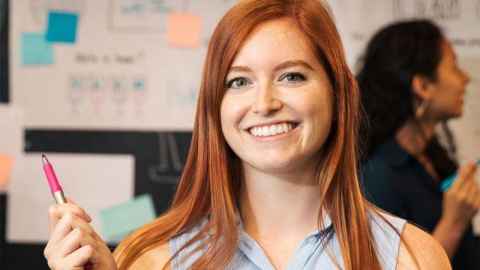
The Business School’s Centre for Innovation and Entrepreneurship was born of a big idea: to transform the mindsets of our students and staff to support the growth of New Zealand as a prosperous and creative nation.
1 revolutionary method for growing human skin discovered
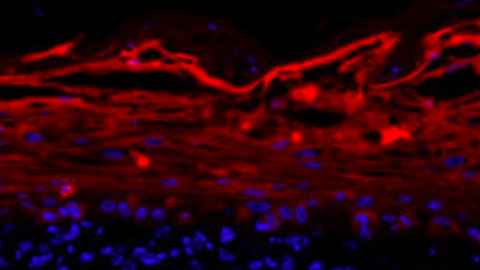
Professor Rod Dunbar's team from the University of Auckland has discovered a technique for growing full-thickness human skin in the lab. Using skin tissue obtained from patients undergoing elective surgeries, they’ve managed to use these cells to grow the human skin in the lab. Amazingly, it takes just 16 days to grow enough skin to cover a human body.
This has great potential to be transformative for the practice of treating burns. Children and adults alike would no longer be subjected to painful and invasive skin grafts and obtaining healthy skin from unburnt parts of the body would no longer be an issue. While not yet available for human use, the research team are aiming to start the first human trials in 2022.
7 letters lasered onto the width of a human hair
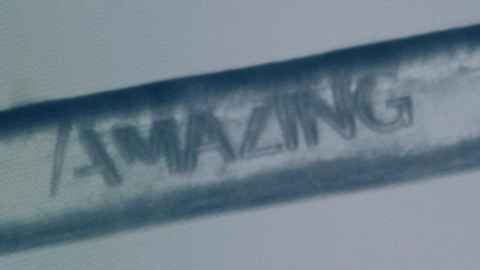
Researchers at the Photon Factory used the latest generation of laser to engrave the word “amazing” on a single hair. These lasers go faster than anything else – faster than a nano second, faster than light. The potential applications are massive and wide ranging - from advancing micro-surgery techniques to improving artificial insemination in pigs.
5,742 supporters donated to the annual appeal
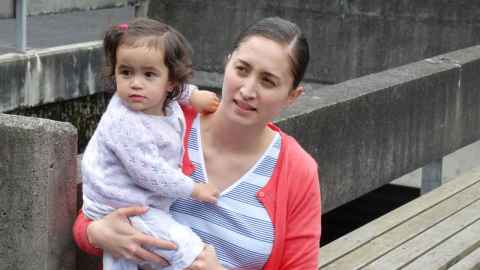
By responding to appeals throughout the campaign like-minded supporters have come together to be a powerful instrument for positive change. Donations large and small create sustainable support that helps students reach their potential, researchers find answers, and the University’s contributions to New Zealand flourish.
At the University of Auckland we are determined that our doors are open to all those who are dedicated to academic excellence and donations like this are helping make this possible. By supporting talent early in students’ careers this helps ensure that those who have the potential to make a major contribution to our businesses, organisations and communities are given the opportunity to thrive.
Read about the life-changing difference financial assistance has made to Engineering student L’Rey Karaitiana.
$5,259,659 given by the Auckland Medical Research Foundation since 2012 to fight cancer

Since 2012, the Auckland Medical Research Foundation (AMRF) has given 50 grants to fund cancer research - a massive $5,259,659. The revolution in cancer research over the last decade is explored in a recent Ingenio feature.
15,500+ students' learning accelerated in Manaiakalani schools
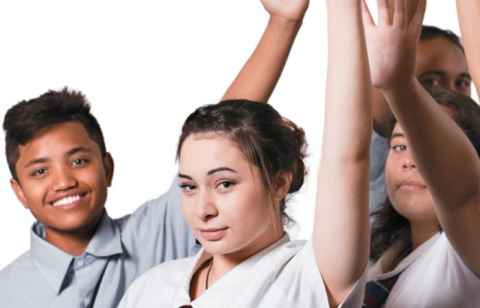
Over 15,500 students in Manaiakalani schools have on average experienced a substantial acceleration in learning, especially writing, when tracked over time by Faculty of Education and Social Work researchers.
The team of educational researchers are continuing to partner with the Manaiakalani education programme in primary schools in low-income communities. The Manaiakalani approach uses connected, ubiquitous and visible teaching approaches to empower learners.
Strongest improvement in learning outcomes is supported by effective use of the Manaiakalani learning principles (learn, create, share), and high levels of parental and student engagement.
2,400,000 million litres of seawater in the Hauraki Gulf filtered every day
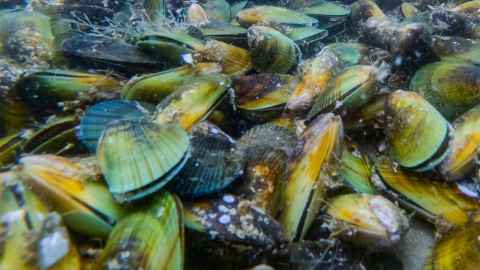
Jenny Hillman and her team are making incredible discoveries about the detoxification power of mussels. These common shellfish filter out a huge amount of dangerous nitrogen, effectively making our seawater cleaner. A single mussel filters 65 litres of seawater a day.
As part of the project, 147 tonnes of adult mussels have been deployed in the Gulf since 2013. That’s about 8.2 million individual mussels and is enough to evenly cover 15km2, or 12 Olympic sized swimming pools. This in turn is enough mussels to filter the water in 984 Olympic sized swimming pools - or approx. 2.4 million litres of seawater – every single day.
Through her work, Jenny is providing practical scientific research to enhance shellfish restoration success as well as understanding more about the full benefits of restoration.
3 new legal research centres established
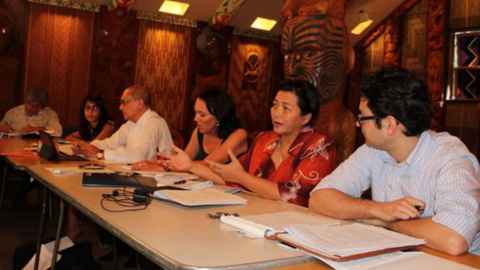
The Information and Communications Technology Law Centre (ICT Centre), The Aotearoa New Zealand Centre for Indigenous Peoples and the Law and the New Zealand Centre for Legal Theory are now established in the Auckland Law School.
800 fungi investigated in the fight against superbugs
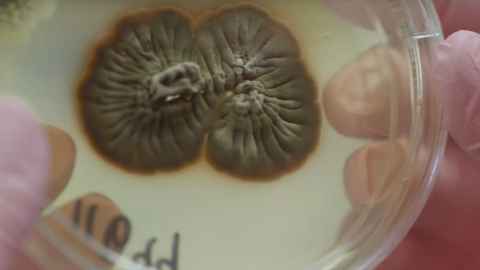
Antibiotics aren’t just used to treat infectious diseases, but to prevent infections in patients having surgery and chemotherapy. The Director General of the World Health Organisation Margaret Chan has called antibiotic resistance “...the end of modern medicine as we know it”. The world desperately needs new antibiotics, and the Bioluminescent Superbugs Lab is working hard to find them.
Most antibiotics come from microbes living in the soil, beginning with the discovery of penicillin from the fungus Penicillium. New Zealand has a treasure trove of unique fungi that have never been searched for new antibiotics. Associate Professor Siouxsie Wiles and her team are working hard to investigate them and thanks in part to the generosity of our donors have assessed over 800 to date.
4 promising biomarkers for rheumatic fever identified
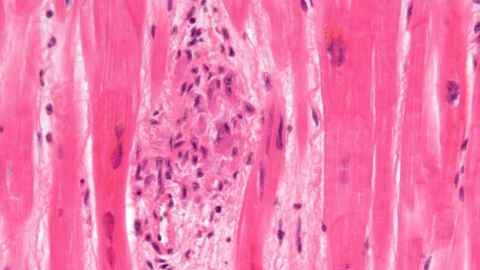
Tragically, there are 160 deaths attributed to rheumatic heart disease every year in New Zealand, despite this being entirely preventable with appropriate care and treatment. With support from Cure Kids, Dr Nikki Moreland and her team from the University of Auckland are investigating antibody-based biomarkers to improve the diagnosis of rheumatic fever, which leads to rheumatic heart disease. Their research involves complex approaches to comparing the antibodies of children with rheumatic fever to the antibodies of children without rheumatic fever.
Four promising biomarkers have been identified and are undergoing further testing in large numbers of samples to see if the biomarkers are accurate indicators of rheumatic fever. If one (or more) of these biomarkers are validated through this process, it would represent a significant discovery in the fight against rheumatic fever and rheumatic heart disease in New Zealand and worldwide.
2 new courses in photography established
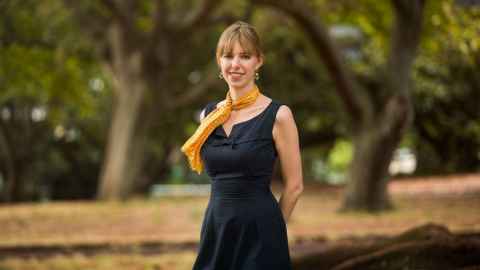
Thanks to the Gerrard and Marti Friedlander Trust for philanthropically funding the newly established Marti Friedlander Lectureship in Photographic Practices and History. Stanford and Columbia Universities academic, Dr Sophia Powers, holds the inaugural Marti Friedlander Lectureship.
937 study participants helping us to answer 'Can we ensure older people have independent, active and fulfilling lives?'
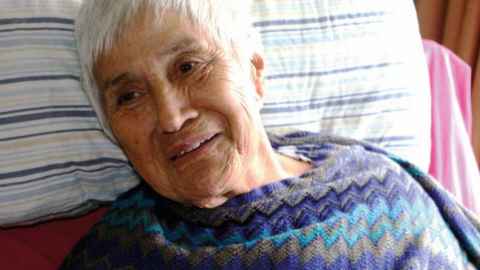
Professor Ngaire Kerse co leads a longitudinal study of Māori and non-Māori New Zealanders, with Dr Marama Muru-Lanning. Entitled 'Life and Living in Advanced Age: a Cohort Study (LiLACS NZ) - Te Puāwaitanga O Ngā Tapuwae Kia Ora Tonu' -the LiLACS initiative is a partnership between Māori and non-Māori to engage 421 Māori born in 1920-1930 and 516 non-Māori born in 1925 in a cohort study aiming to identify predictors of successful advanced ageing.
New findings from the study paint a stark picture of loneliness in old age. Forty percent of Māori and 28 percent of non-Māori participants reported feeling lonely always, often or sometimes. For widowed people, the figures were 46 percent (Māori) and 42 percent (non-Māori). Retirees were significantly more likely to report loneliness for Māori but not non-Māori. One in 20 participants overall reported feeling lonely always or often (5.1 percent of Māori, 5.5 percent of non-Māori).
Professor Kerse: “That’s an important five percent. Loneliness is associated with poor mental and physical health, lower quality of life, cognitive decline and even dying sooner. And it’s a problem we can do something about, as individuals and as a society.”
$613,700 granted by the Michael J Fox Foundation in the fight against Parkinson's

The Michael J Fox Foundation, founded by the Canadian actor and writer, is the world’s largest non-profit funder of Parkinson’s research, and is dedicated to accelerating a cure for Parkinson’s disease and improved therapies for those living with the condition. Recognising the amazing work undertaken at the University's Centre for Brain Research, the Foundation has granted a total of $613,700 in the fight against Parkinson's.
The total includes a recent grant of nearly quarter-of-a-million dollars, made in July 2019, to enable the research team at the University to ramp up their hunt for new drugs to potentially slow down Parkinson's.
“Current treatments only alleviate symptoms but do not target the actual cause,” says Dr Victor Dieriks, co-lead of the research team.
“What we are seeking is treatments that would delay or even prevent degeneration by targeting the earliest disease processes. One of these early processes is inflammation of brain cells, called ‘neuroinflammation’, and that’s what we are focusing on.”
A huge thank you to the 120,623 alumni who got involved
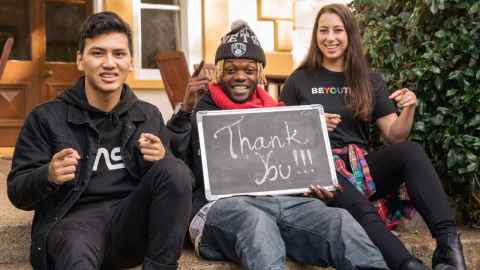
A huge thank you to the overwhelming number of alumni who took the time to volunteer, come along to one of our events, make a gift, connect with us, engage with our newsletters and publications and talk to our student callers. Your support is inspiring.
Just 2 millimetres of brain tissue provides a wealth of information for our researchers fighting Alzheimer's Disease
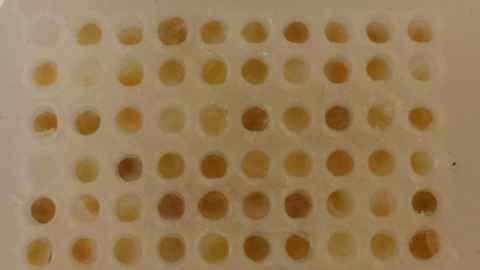
Dr Malvindar Singh-Bains is using a unique method to study human brain tissue from Alzheimer’s Disease donor brains and it only requires a 2 millimetre sample! A fellowship supported by the Freemasons Foundation is funding Dr Singh-Bains to assess disease indicators and potential drug targets for the treatment of Alzheimer’s Disease before all the neurons (main brain cells) have died. She is using a technique, called the tissue microarray, to systematically arrange 2 millimetre pieces of brain tissue into a very compact area. Using this approach, Malvindar has scanned the human cerebellum and found interesting and novel changes occurring in Alzheimer’s Disease.
Malvindar has identified key alterations in blood vessels and immune cells and in the human cerebellum in Alzheimer’s disease.
18,000 obsidian artefacts from Ahuahu sourced and analysed
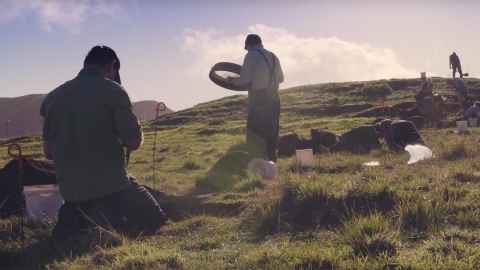
Sir Michael Fay's philanthropic support assists archaeology academic, Professor Simon Holdaway, and his team to carry out digs on Great Mercury Island/Ahuahu every year. As part of their work, over 18,000 obsidian artefacts have been uncovered and analysed, representing the largest such analysis in the Pacific. Sir Roderick and Lady Gillian Deane established the Natalie Blair Summer Scholarships for 2 students who source, analyse and record artefacts from Ahuahu.
In addition, over one billion data points have been generated so far from the Ahuahu project. Findings include strong evidence for early and continuing Māori human-environment interaction.
12 seniors with Alzheimer’s invited to dance
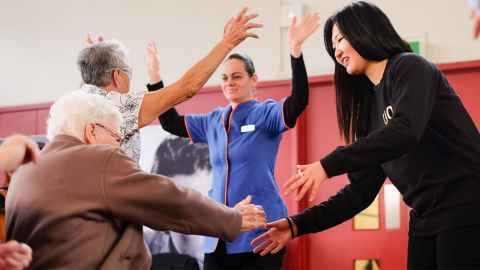
Most people imagine tutus and entertainment when they think about dance. Yet research at the University of Auckland is exploring another vision for dance, a vision that examines how dance can help people with dementia, perhaps even delaying onset or slowing its progression.
Thanks to the generosity of donors, in one study 12 postgraduate students led weekly dance sessions attended by 12 adults, aged between 51 and 70. Each session involved teacher-led stretching exercises, partner work, improvisation and group dancing. Following the project, anecdotal evidence indicated that the participants with dementia were happier and coping better when interacting with others.
“If, through research, we could learn how to employ this and other types of arts activity to help in slowing down the onset and progression of Alzheimer’s disease and dementia by two or even five years, this would decrease the prevalence by 20 or 50 percent, respectively,” says Centre for Brain Research Director Professor Richard Faull. “A greater proportion of the elderly would live a longer life, free of the tragic consequences of these diseases.”
2 novel, safer treatments for drug-resistant tuberculosis developed
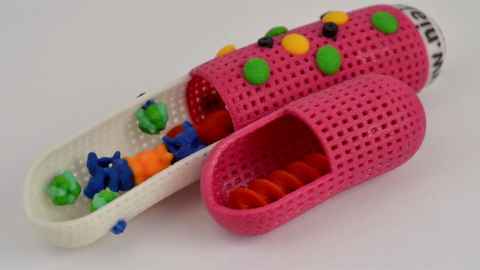
In a collaboration with the Global Alliance for Tuberculosis in New York, researchers at the University of Auckland have developed two new drugs which have just begun clinical trials in patients with drug-resistant tuberculosis. Tuberculosis is a re-emergent disease, with 10 million new cases (580,000 of which were drug-resistant) and 1.6 million deaths worldwide in 2018.
1354 students inspired at Unleash Space
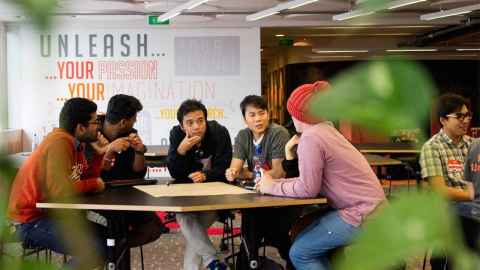
Unleash Space is a new, vibrant, student-led innovation and entrepreneurship hub with a state-of-the-art maker space.
600 students participated in the Formula SAE programme
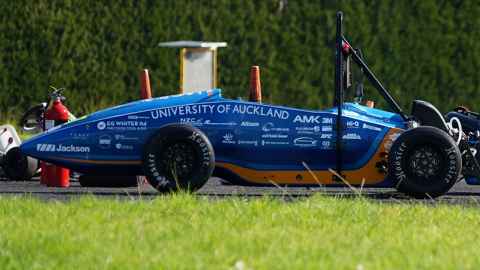
This philanthropically funded programme sees students design, manufacture and compete a racing car. It provides an incredible opportunity for the student to apply what they have learnt in the lecture theatre and prepare them for their future careers.
We've averaged about 40 students taking part per year - so that's around 600 students in the 15 years that the programme has been running.
200 pages and 30 manuscripts of James Cook and Sir Joseph Banks letters transcribed
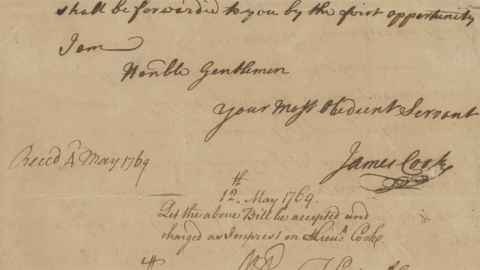
The Auckland Public Library is holder of manuscripts, letters and notes of correspondence between Sir Joseph Banks and Captain James Cook. With the 250th anniversary of Cook’s landing in New Zealand in 2019, the Auckland Library Heritage Trust approached the University’s History experts seeking help to get the material transcribed and made accessible to the wider library readership.
Auckland Library Heritage Trust established a summer scholarship for postgraduate History student Jake Bransgrove to research and transcribe the documents.
500 alumni made a difference to their community during Volunteer Impact Week
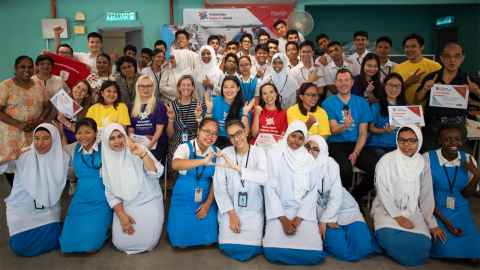
The University of Auckland Volunteer Impact Week (VIW) was held from 16-22 June with over 500 University graduates, students and staff taking part in over 30 projects by giving at least one hour of their time to a local cause. VIW supports the University’s For All Our Futures alumni engagement challenge, “Can we increase the contribution our community makes to the world?”, and builds on the collaboration with Volunteering New Zealand’s National Volunteer Week.
The week included local efforts in New Zealand such as helping homeless families, working to restore the natural environment, as well as assisting a hospice organization get donated goods to those in need. Internationally, groups of alumni and friends came together to help clean up a local school in the Philippines, build trails in Vancouver, and work with refugee students in Malaysia.